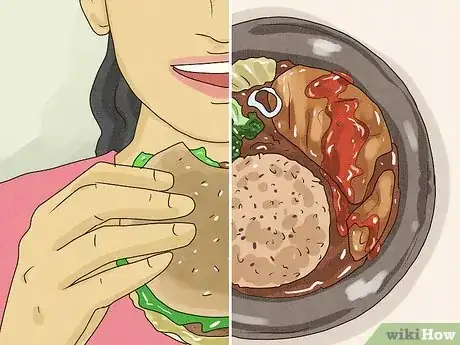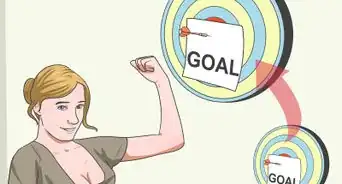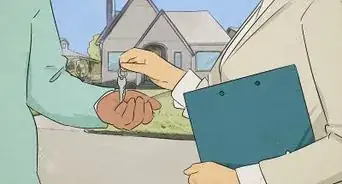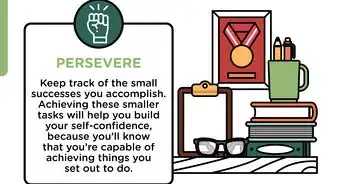This article was written by Catherine Boswell, PhD and by wikiHow staff writer, Madeleine Flamiano. Dr. Catherine Boswell is a Licensed Psychologist and a Co-Founder of Psynergy Psychological Associates, a private therapy practice based in Houston, Texas. With over 15 years of experience, Dr. Boswell specializes in treating individuals, groups, couples, and families struggling with trauma, relationships, grief, and chronic pain. She holds a Ph.D. in Counseling Psychology from the University of Houston. Dr. Bowell has taught courses to Master’s level students at the University of Houston. She is also an author, speaker, and coach.
There are 15 references cited in this article, which can be found at the bottom of the page.
This article has been viewed 15,192 times.
Worried about how irresistible that guilty pleasure is? Maybe it's a heavenly slice of cake, an addictive video game, or a silly reality show. Whatever it is, we'll help you come to terms with what you like and teach you how to handle any shame you feel. Check out our practical guide to treat yourself to a guilt-free life that you're proud of.
This article is based on an interview with our licensed psychologist, Catherine Boswell, co-founder of Psynergy Psychological Associates. Check out the full interview here.
Things You Should Know
- Focus on combating guilt instead of eliminating pleasures.
- Use positive self-talk as a way to resist falling prey to shame.
- Set rewards and practice delayed gratification to motivate yourself.
- Prioritize your emotional and mental health by practicing self-care.
Steps
Expert Q&A
-
QuestionWhat causes feelings of guilt?
 Catherine Boswell, PhDDr. Catherine Boswell is a Licensed Psychologist and a Co-Founder of Psynergy Psychological Associates, a private therapy practice based in Houston, Texas. With over 15 years of experience, Dr. Boswell specializes in treating individuals, groups, couples, and families struggling with trauma, relationships, grief, and chronic pain. She holds a Ph.D. in Counseling Psychology from the University of Houston. Dr. Bowell has taught courses to Master’s level students at the University of Houston. She is also an author, speaker, and coach.
Catherine Boswell, PhDDr. Catherine Boswell is a Licensed Psychologist and a Co-Founder of Psynergy Psychological Associates, a private therapy practice based in Houston, Texas. With over 15 years of experience, Dr. Boswell specializes in treating individuals, groups, couples, and families struggling with trauma, relationships, grief, and chronic pain. She holds a Ph.D. in Counseling Psychology from the University of Houston. Dr. Bowell has taught courses to Master’s level students at the University of Houston. She is also an author, speaker, and coach.
Licensed Psychologist Typically, you learn to feel guilt in childhood. You may have been your family's scapegoat for when things went wrong, or perhaps someone made you feel guilty for certain behaviors. It's easy to internalize these messages, which makes you feel guilty for things that are totally okay. Focusing on what you're doing right and appreciating your strengths can help you overcome these feelings of guilt.
Typically, you learn to feel guilt in childhood. You may have been your family's scapegoat for when things went wrong, or perhaps someone made you feel guilty for certain behaviors. It's easy to internalize these messages, which makes you feel guilty for things that are totally okay. Focusing on what you're doing right and appreciating your strengths can help you overcome these feelings of guilt.
References
- ↑ https://www.ncbi.nlm.nih.gov/pmc/articles/PMC3083636/
- ↑ https://www.psychologytoday.com/us/blog/the-gen-y-psy/201810/how-spot-your-emotional-triggers
- ↑ https://www.helpguide.org/articles/diets/emotional-eating.htm
- ↑ https://psychcentral.com/health/why-you-feel-guilty-all-the-time
- ↑ https://www.nclap.org/healing-shame-through-self-affirmation/
- ↑ https://greatergood.berkeley.edu/article/item/10_steps_to_savoring_the_good_things_in_life
- ↑ https://health.ucdavis.edu/medicalcenter/features/2015-2016/11/20151125_gratitude.html
- ↑ https://www.psychologytoday.com/ca/blog/overthinking-tv/202011/guilty-pleasures-are-just-pleasures
- ↑ https://health.clevelandclinic.org/heres-the-deal-with-your-junk-food-cravings/
- ↑ https://pubmed.ncbi.nlm.nih.gov/24275670/
- ↑ https://www.hopkinsmedicine.org/health/wellness-and-prevention/the-benefits-of-having-a-healthy-relationship-with-chocolate
- ↑ https://www.sciencedirect.com/science/article/abs/pii/S1875952117301374
- ↑ https://health.clevelandclinic.org/retail-therapy-shopping-compulsion/
- ↑ https://psychcentral.com/health/extrinsic-motivation
- ↑ https://www.betterhealth.vic.gov.au/health/healthyliving/self-esteem








































































Medical Disclaimer
The content of this article is not intended to be a substitute for professional medical advice, examination, diagnosis, or treatment. You should always contact your doctor or other qualified healthcare professional before starting, changing, or stopping any kind of health treatment.
Read More...